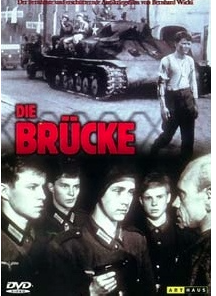Before anyone’s going to tell me that I should have known better, I’ll admit it right away—Yes, I should have known better and not even bothered watching Bridge of Spies. It had everything I don’t like about some Spielberg movies: length, sentimentality, hokeyness and Tom Hanks. So, why watch it? You know, it could have been good. Every once in a while Spielberg produces something really decent. And I’ve seen films with Tom Hanks I liked (Saving Private Ryan, Philadelphia, Road to Perdition). And since it was based on true events, I thought it would at least be interesting. And it was. If only they had cut at least half an hour. And abstained from a super-corny ending.
So, what’s it about. Tom Hanks is an American lawyer, Donovan, who is hired to defend a Russian spy. The US want to make sure that they are perceived as just and fair. Donovan is a lawyer who has no experience in criminal law, nonetheless, he’s giving his best, which isn’t wanted. He soon finds out that no matter how good his defence is, he will never get his client free as the verdict’s been agreed upon a long time ago. It’s a bogus trial.
Donovan is one of those typical Spielberg characters who rise above themselves when they see injustice and don’t shy away from putting themselves in danger. While he isn’t able to free the spy, he’s able to avoid the death penalty and he’s clever enough to make the authorities understand that a Russian spy, if left alive, could come in handy. And he’s right. Very soon they will be able to use the spy to free one of their own.
So far, I liked the movie but then comes the second part, in which Donovan is hired by the CIA to arrange the exchange of Rudolf Abel against a captured American pilot, Francis Gary Powers, whose U2 spy plane was shot down during a mission over Russia.
Donovan is sent to East Berlin to arrange the exchange. It’s 1961 and the wall has just been built. During those chaotic days, an American student is captured because he’s suspected to be a spy. Donovan hears of this and during the second part of the movie, we see him negotiate with the Russians and the Eastern Germans to exchange Abel against both Americans.
The second half of the movie suffered from terrible lengths. The filmmakers tried to make it gripping, accentuating how dangerous the territory was, but they didn’t succeed because the discussions between the involved parties were stiff and slow and full of clichés. I was tempted to fast-forward.
The hardest part to watch was the ending. It was just so painfully corny. There’s a scene at the beginning of the movie, in which a woman on a train looks scornfully at Donovan because he defends a Russian spy. The very same woman can be seen looking at him with great admiration and gratefulness at the end. These are the kind of corny, sentimental scenes that make me shudder.
As I said before, I’m not that keen on Tom Hanks or Spielberg but they have both done great, or at least entertaining movies. This wasn’t one of them.
Meanwhile, I’ve done some digging and it doesn’t even look as if the movie was historically accurate.
Have you seen it? Did you like it?




